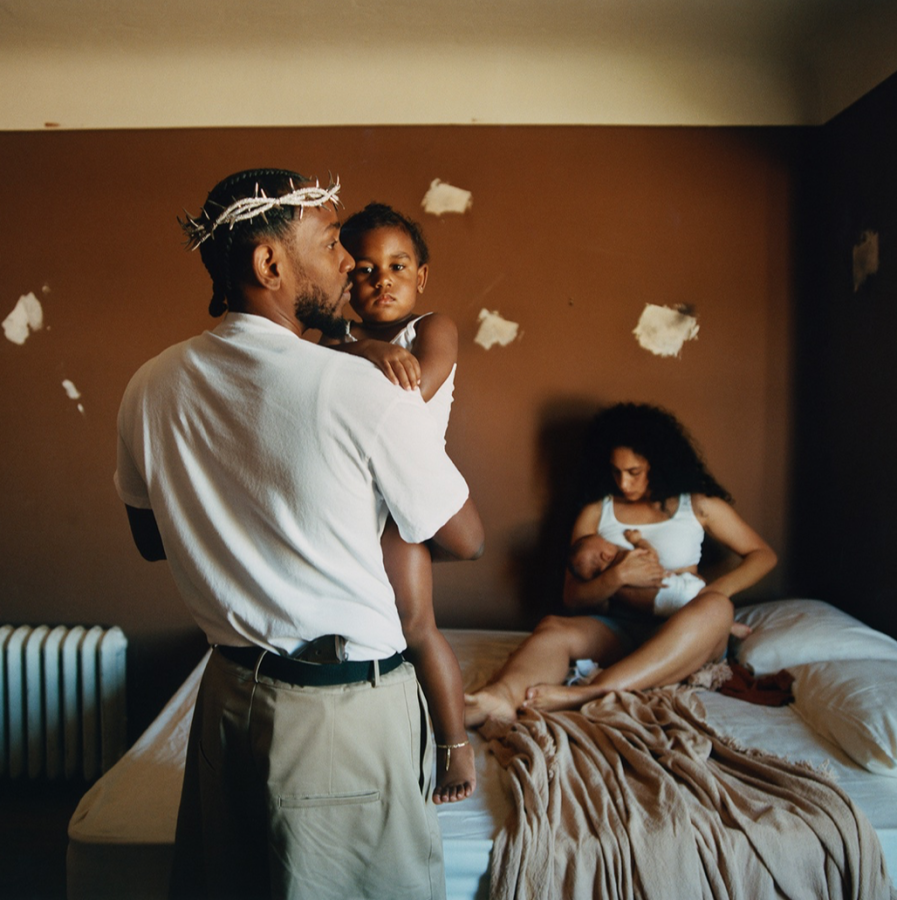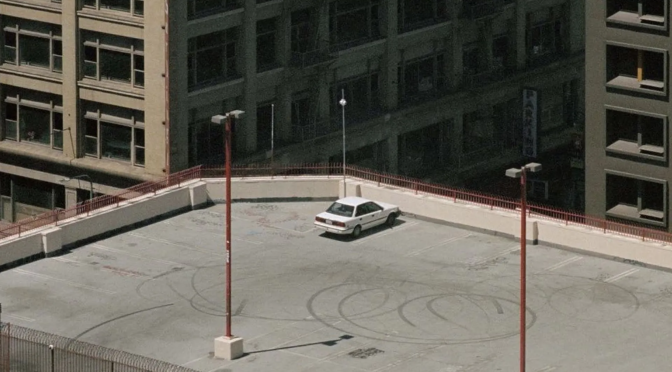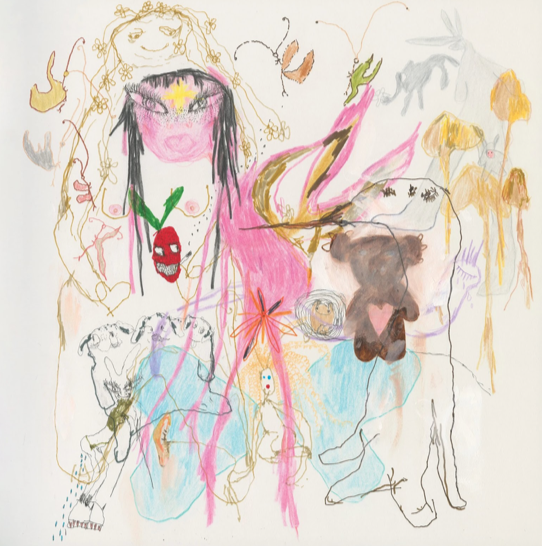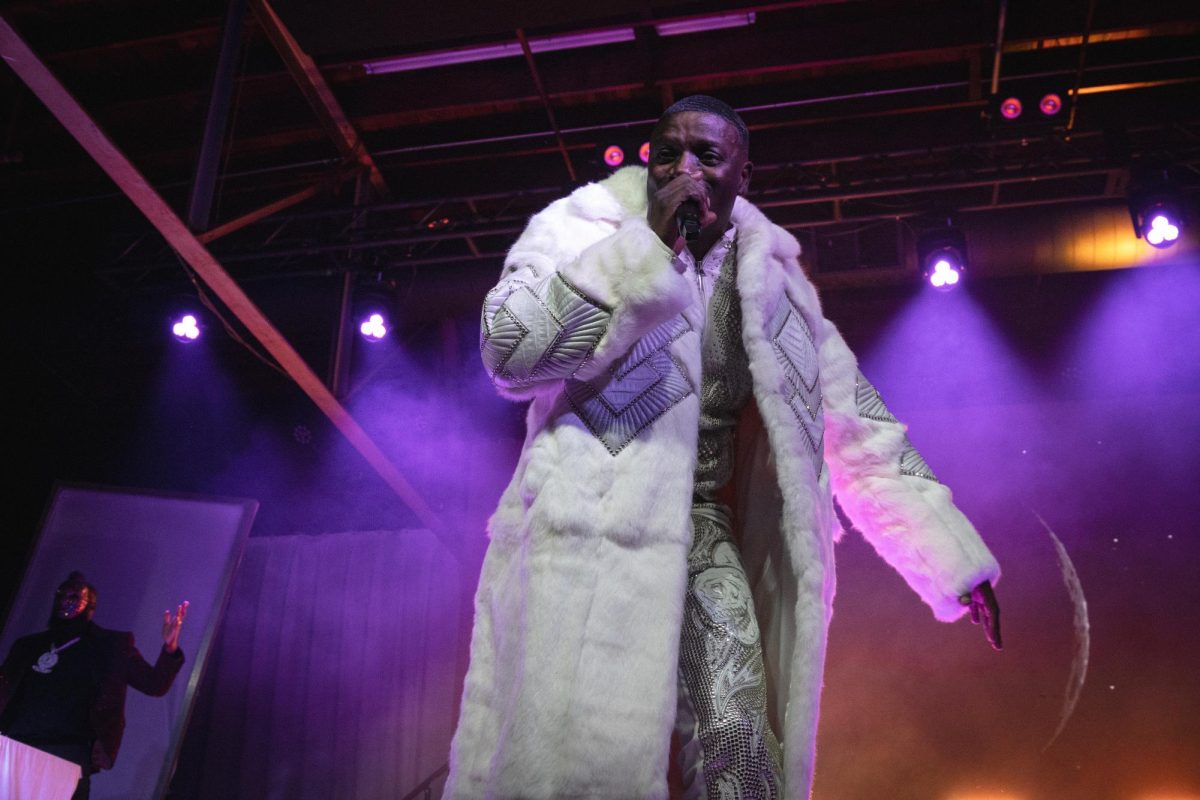He has attracted the acclaim of critics and audiences alike; racking up Grammys, topping charts and even winning a Pulitzer Prize—the first non-classical or jazz artist ever to receive the award. His music is not only the pulse of raves and mosh pits but also a stimulus for scholarly studies and an anthem for modern racial reckonings, fueling protests and rallies nationwide. In the decade-long span of his career, the good kid from the “m. A. A. d city” of Compton, California, has become something of a hip-hop prophet—capturing the voice of a generation through graphic vignettes colored by virtuosic lyricism and dynamic flows.
But Kendrick Lamar doesn’t see it that way.
His previous albums are high-concept blockbusters, from a searingly unfiltered glimpse into his tumultuous upbringing, to a sprawling multilayered portrait of the modern African American experience that marries hip-hop and jazz. But Lamar’s latest album, “Mr. Morale & The Big Steppers,” is an intimate stage play that places the reservations and self-criticisms of the man behind the mic at its focal point.
Now, that’s not to say the album lacks lyrical pyrotechnics. The track “N95” is Lamar at his most incendiary. Coupled with booming 808s, blistering hi-hats and grandiose synths, Lamar skillfully contorts his vocal delivery to orchestrate an entire symphony of diverse voices, expressing stances on the post-pandemic status quo and materialism in hip-hop. There is a pervading sense of bold authenticity that permeates throughout this track, as well as the album as a whole.
While Lamar excels at creating some of the most polished tracks in hip-hop, one of his best performances on the album is raw, cluttered and downright ugly. In “We Cry Together,” Lamar enlists the talents of actress Taylour Paige, who duets with him in a vitriolic domestic argument over an off-kilter and dissonant piano riff. Clocking in at just under six minutes, the track meanders from discussions of Lamar’s infidelity, to references of controversies surrounding Donald Trump, Harvey Weinstein and R. Kelly, to a flurry of f-bombs that sounds like something pulled straight out of “Uncut Gems.” “We Cry Together” is one of the most stressful and uncomfortable tracks I have listened to in recent memory—and that’s the point. It is shockingly effective in encapsulating an inconvenient reality of relationships about which nobody talks.
Paige isn’t the only notable guest appearance on “Mr. Morale & The Big Steppers.” A beacon of hip-hop’s past with Ghostface Killah of the Wu Tang Clan and hip-hop’s future, with his cousin, Baby Keem, both contribute standout verses. R&B singers Blxst, Amanda Reifer and Sampha also add effortlessly soulful and mellow choruses. However, the inclusion of one particular artist has garnered some backlash.
With a string of convictions ranging from weapon possession to sexual battery, Kodak Black is a jarring feature choice by Lamar, an artist steeped in acclaim and influence.
While confronting Lamar’s imperfections is a pervading theme throughout the album, enlisting a convicted sexual offender to achieve those means is unnecessary and insulting to those impacted by sexual assault.
Kodak Black’s appearance is not the only surprise that Lamar has in store. In “Auntie Diaries,” he breaks new thematic ground with a riveting anecdote about his transgender relatives, which he uses as a rallying cry against homophobia and transphobia within hip-hop. His use of the f-slur is questionable, but Lamar’s well-intentioned and purposeful storytelling is a step in the right direction.
Lamar delivers the most shocking and heartbreaking revelation in the penultimate track, “Mother I Sober.” Backed by delicate piano chords and soft vocals from Beth Gibbons, the lead singer of Portishead, he exposes how his mother’s experience with sexual abuse, coupled with his infidelity and addiction to lust, has deeply ingrained a sense of guilt and shame within him.
Upon first glance, the crown of thorns Lamar wears on the album cover may seem to portray him as some hip-hop prophet, but throughout the course of the project, he reveals himself to be more of a martyr. “Mr. Morale & The Big Steppers”’ is not a grand finale, but a swan song in which Lamar undeifies himself to his listeners by laying his flaws and sins bare for everyone to hear, showing the world that the greatest rapper of this generation is nothing more than a mortal man.











